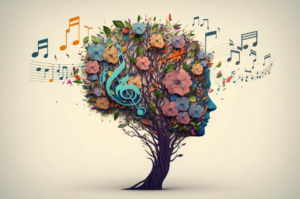Introduction
Have you ever wondered why music can make you feel so deeply? Science has uncovered incredible ways in which music affects the brain, from enhancing memory to reducing stress. Let’s explore the fascinating connection between music and neuroscience.
Music Enhances Cognitive Function
Learning music strengthens the brain’s prefrontal cortex, which governs decision-making and problem-solving. Children exposed to music training tend to perform better in academic subjects, particularly math and reading.
Emotional Regulation
Listening to or playing music can influence the limbic system, the brain’s emotional hub. Slow, soothing music lowers cortisol levels, helping to combat stress and anxiety, while upbeat tunes can elevate mood and energy levels.
Neurological Recovery
Music therapy is increasingly used in treating neurological conditions such as stroke or Parkinson’s disease. The rhythm in music helps retrain motor functions, while melodies stimulate damaged areas of the brain.
Conclusion
Music is a powerful brain booster that anyone can benefit from. Whether you’re studying, healing, or simply enjoying, let music be a part of your life.




